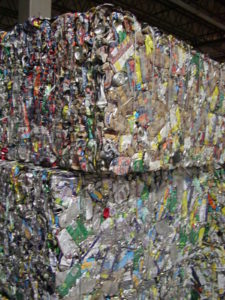There will likely be additional changes to China’s imports of recyclable materials in the near future.
As we mentioned in a previous blog post about China’s National Sword anti-smuggling plans, under the Chinese government’s “National Sword 2017” clampdown, close inspection of imported recyclable materials were put in place. These materials include cardboard and mixed paper, recyclable plastics, low grade metal scrap, and many other materials. China’s purpose for this campaign was an attempt to clean up the type of waste entering their country.
With China being by far the largest importer of these types of materials, it has created a significant impact on material flow as well as concern for recyclers worldwide.
There is now talk of these actions being expanded. Rumors are now stating that within the next 5-10 years China may ban the import of certain recyclables completely.
How will this affect the US recycling industry? Dramatically. As stated earlier China is by far the biggest buyer of recyclable scrap in the world. No other country even comes close. Should certain grades of materials be banned it will leave recyclers scrambling to find additional outlets for their scrap.
Proper, efficient, and cost effective recycling relies on strong, long term stable markets for their end product. No matter how the industry has changed throughout the years, supply and demand is, and will continue to be, the determining factor when it comes to cost effective recycling.
There is a cost related to every ton and every grade of material handled at a recycling facility. If this cost cannot be covered, and a profit made, then recycling companies will not be able to stay in business, and it will be less likely goods are recycled. Even though recycling should be the first choice when disposing of materials, it will not take place without viable end markets.
The direction that China takes regarding recycling and their National Sword policy will be closely monitored by the recycling industry for years to come. Let’s just hope that any decision that is carefully thought out, right for the environment, and good for the recycling industry long term.

